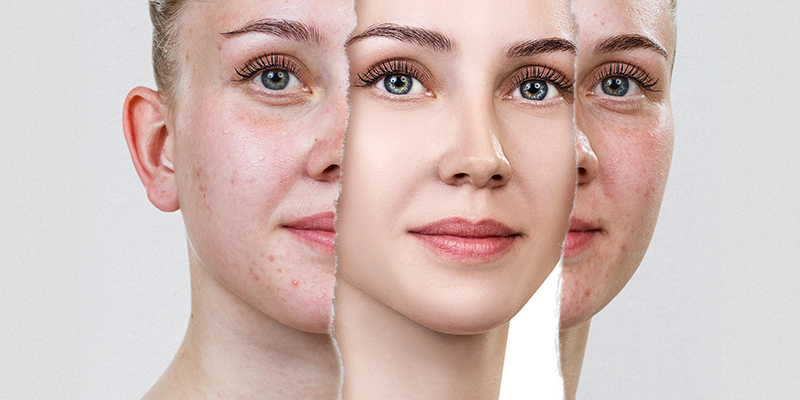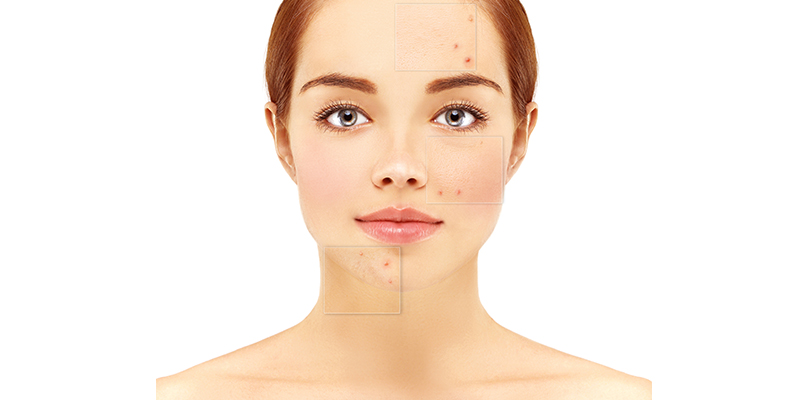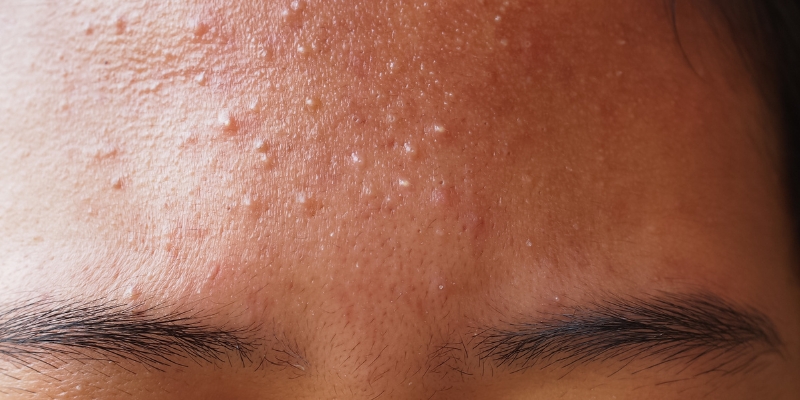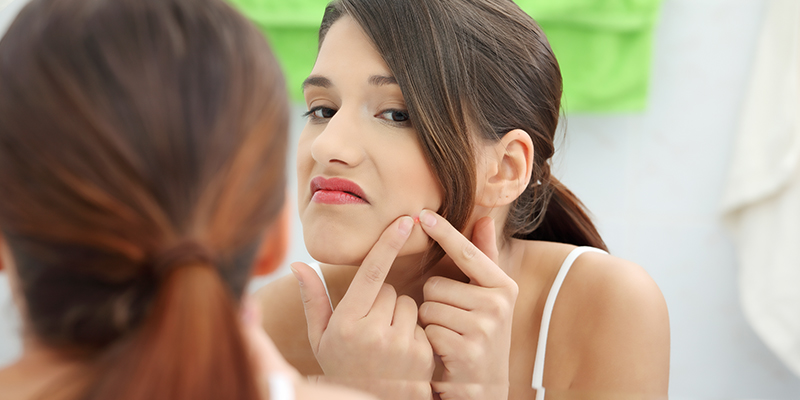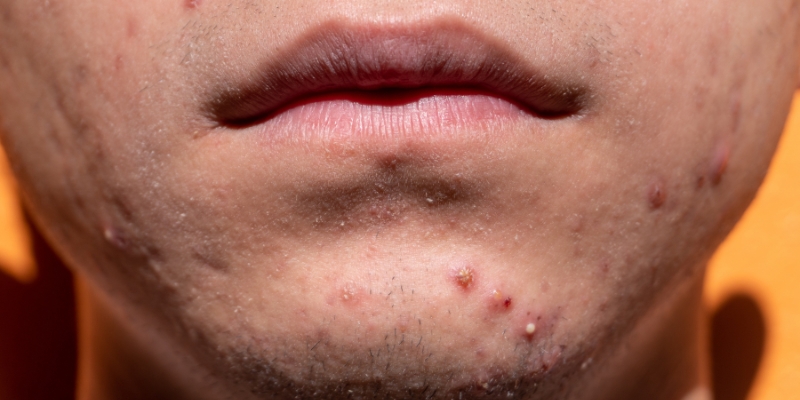Morning vs Night Skincare Routine for Acne: What’s Best for Clear Skin?
A skincare routine is a must if you want to maintain healthy and radiant skin, regardless of your skin type. Especially for people with acne-prone skin, [1] it is a non-compromising option. However, the challenge is determining what to prioritise: the morning skincare routine or the night. If you are someone who share the same struggle, you are on the right page. In this ultimate guide, we will compare both morning and night skincare routines for acne-prone skin, explore their differences and present dermatologist tips to strike the right balance. Additionally, we will discuss how the professional acne treatments from Oliva Clinics benefit people with acne.
In This Article
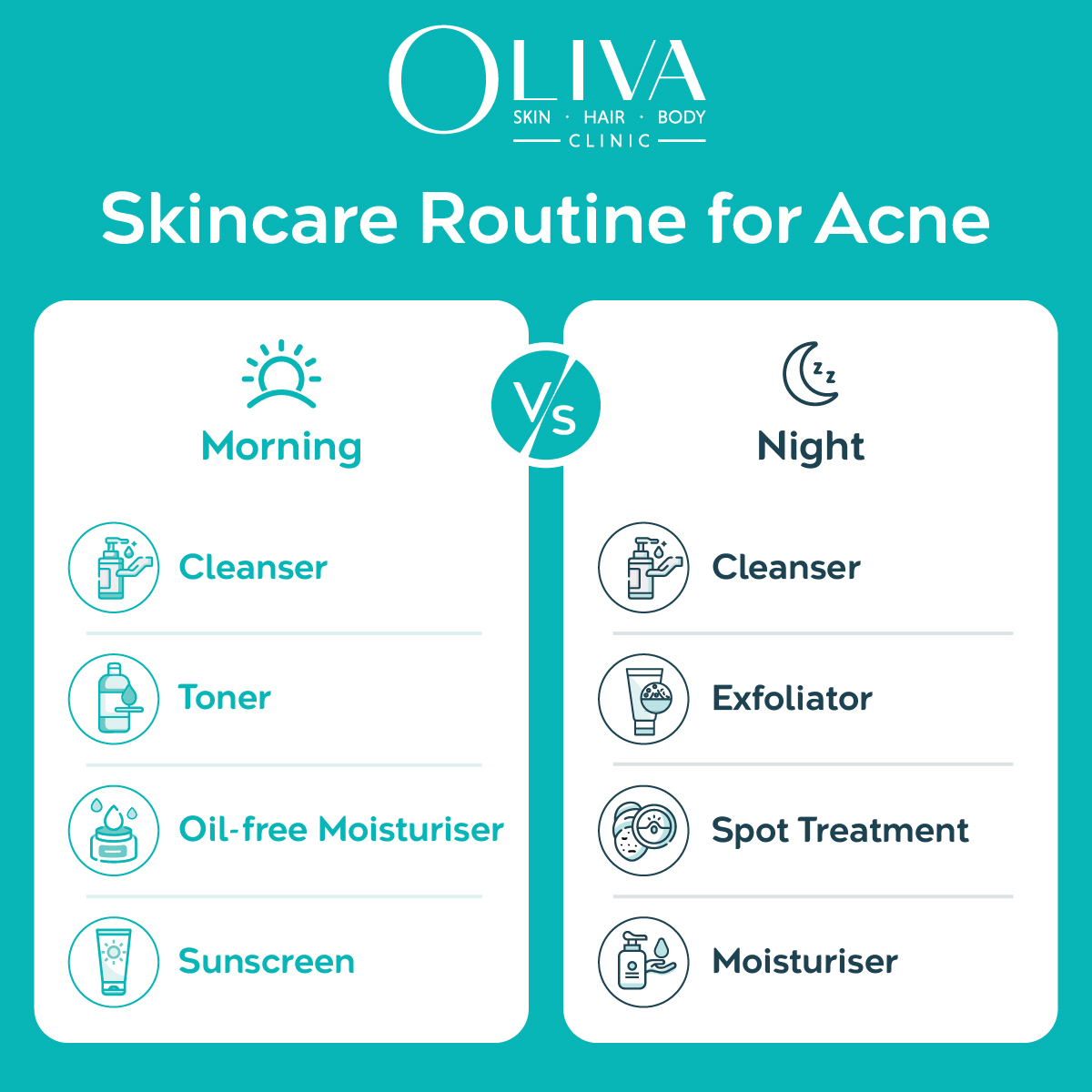
Morning vs Night Skincare Routine For Acne: Key Differences
Here’s a comparative analysis of morning and night skincare routines for acne-prone skin:
| Feature | Morning Skincare Routine | Night Skincare Routine |
| Purpose | Nourish, hydrate and protect the skin | Repair, regenerate and restore |
| Cleanser | Gentle cleanser to remove oil, and dirt buildup. | Double cleansing to remove makeup, sunscreen, sweat and bacteria. |
| Spot Treatment | Products [2] containing ingredients like niacinamide, salicylic acid, etc. | Products containing ingredients like retinoids, benzoyl peroxide, etc. |
| Moisturiser | Lightweight moisturiser that is non-comedogenic and hydrating. | Heavy moisturiser that is non-comedogenic and hydrating. |
| Sunscreen | Broad-spectrum sunscreen with SPF 30 or more. (Non-negotiable) | Not required |
| Exfoliator | Your cleanser contains exfoliants that help with daily exfoliation | Use an exfoliator containing AHAs or BHAs 2-3 times weekly |
| Serum | Water or oil-based serum with vitamins C and E | Water or oil-based serum with ingredients like AHAs or BHAs, retinol, or hyaluronic acid |
| Sensitivity | Acne ingredients that do not cause sun sensitivity | Photosensitive ingredients for acne, like retinols |
| Oil Control | Mattifying products to keep your skin shine-free | Products that hydrate, soothe, and repair |
| Compatibility | Skincare routine products should help your makeup sit right | Not required, as your skin is bare. |
Morning Skincare Routine for Acne: Step-by-Step
Your morning skincare routine should keep your skin hydrated, nourished and protected throughout the day. Here are the steps you should incorporate in your morning skincare regimen:
-
Cleanser:
Start your morning routine with cleansing to remove any dirt, oil or sweat that has accumulated on your skin overnight. Use products containing ingredients like salicylic acid [3] or benzoyl peroxide.
-
Toner:
After you cleanse your face, apply a toner. It helps remove residues of dirt or oil and soothes your skin. Make sure the product you choose is alcohol-free.
-
Lightweight Oil-free Moisturiser:
It’s time to moisturise your skin. Use a lightweight moisturiser with a non-greasy formula that keeps your skin hydrated, soft, and balanced all through the day.
-
Broad-spectrum SPF:
After you finish moisturising your skin, layer it with a broad-spectrum sunscreen with SPF 30 or higher. Your sunscreen should be non-comedogenic.
-
Optional:
You can also apply an antioxidant serum containing ingredients like niacinamide or vitamin C. However, this step is optional. When you apply a serum, make sure you use it after applying a toner and before applying moisturiser.
Night Skincare Routine for Acne: Step-by-Step
Your night skincare routine is as crucial as your morning one. Here are steps you can incorporate into your night regimen:
-
Cleanser:
Your night skincare routine should start with double cleansing, especially if you wear makeup. First, use an oil-based cleanser to remove makeup and sunscreen, followed by a water-based cleanser to get rid of sweat and bacteria.
-
Exfoliator:
Exfoliate your skin 2-3 times a week using products containing chemical exfoliants, like AHAs or BHAs. Do not over-exfoliate.
-
Spot Treatment:
After cleansing, go for the acne spot treatment. Use products containing retinoids, [4] adapalene, or salicylic acid, as they help treat acne.
-
Moisturiser:
At night, use a slightly heavier moisturiser to provide your skin with an extra dose of hydration.
Common Mistakes to Avoid
If you want to maximise the benefits of your skincare routine (both morning and night), it is essential to know the right approach. Missing the sequence of your regimen or applying improperly can worsen your acne. Make sure you avoid these common mistakes:
- Do not use harsh cleansers on your skin, as they can strip your skin of essential oils. Moreover, the harsh ingredients can aggravate your condition.
- Do not skip sunscreen. It is a non-negotiable step. You should wear a sunscreen every day, regardless of whether you are indoors or outdoors.
- Do not use too many skincare products all at once. Overloading with too many actives can damage your skin barrier.
- Be consistent with your AM or PM routines. Inconsistency can snatch away your skin care benefits.
- Do not pop your pimples or prick at them, as it can cause the infection to spread to current breakouts. It can also lead to scars and hyperpigmentation.
Which Routine Matters More for Acne?
If you ask us which routine is more important, we would say both are equally important. Morning and night skincare regimens have their unique benefits. However, never compromise on your night skincare routine, as it is crucial for treating and preventing acne. It is only during the night that your skin heals. Consistently following your nighttime routine helps repair skin damage, regenerate cells, and restore the balance. Whereas the morning routine helps protect and nourish the skin.
When to Visit a Dermatologist?
A consistent AM and PM skincare routine can help manage acne. However, sometimes, a regimen alone will not suffice. You need expert help to treat recurring or persistent acne. Check the points below clearly to see if you might need to consult a dermatologist:
- You have been diligently following your day and nighttime routine. However, your acne seems to be coming back and is persistent. It is a clear sign that you need medication beyond the regular care.
- If you have severe cystic acne that is painful and often leaves your skin with scars or dark spots, do not delay. Seek professional help immediately.
- You may have been using over-the-counter products for quite some time now. However, you notice no significant improvement in your condition. This means that your products are not working, and you need in-clinic treatments.
- If you are looking for a safe and customised solution for acne tailored to your skin type and skin needs, consult a dermatologist for a professional acne treatment.
How Oliva Clinic Can Help You Treat Acne?
Your quest for the best clinic for acne treatment has come to an end. Oliva Clinics is known for offering customised solutions tailored to individuals’ needs based on their skin analysis. They treat all types and grades of acne. Also, all their treatments are US FDA-approved and deliver better results. Here is a list of the advanced acne treatments available at Oliva:
- Chemical Peels: If you have mild to moderate acne, dermatologists at Oliva will recommend chemical peels. These are specially formulated peels made from plant-based extracts and are available in varying strengths and concentrations. When the doctors apply a layer of peel all over your face, it triggers controlled exfoliation of the top layer of skin and removes oil, dirt, dead cells and unclogs the pores.
- Comedone Extraction: Dermatologists perform this in-clinic treatment for blackheads and whiteheads. They use a specialised tool to extract comedones from the skin’s surface. It minimises the risk of scarring and marks on the skin.
- Intralesional Injections: If you are struggling with painful cysts and nodules, Oliva’s dermatologists may recommend this treatment. During the procedure, they administer specialised injections to reduce inflammation and infection.
Takeaway
Adopting a consistent acne skincare regimen is the first step to reducing breakouts and preventing new ones from appearing. However, it should be tailored to an individual’s skin needs. Every skin is different, and hence it requires a unique approach. If you have severe or persistent acne that does not seem to go away even after a regular AM and PM routine, you need professional acne treatments. This is where Oliva comes into the picture. At Oliva, the advanced treatments include a perfect balance of clinical expertise and personalised skincare to help deliver your desired results. That said, you do not have to deal with acne alone. Book a consultation with an expert dermatologist at our clinic today and we will take care of the rest.




